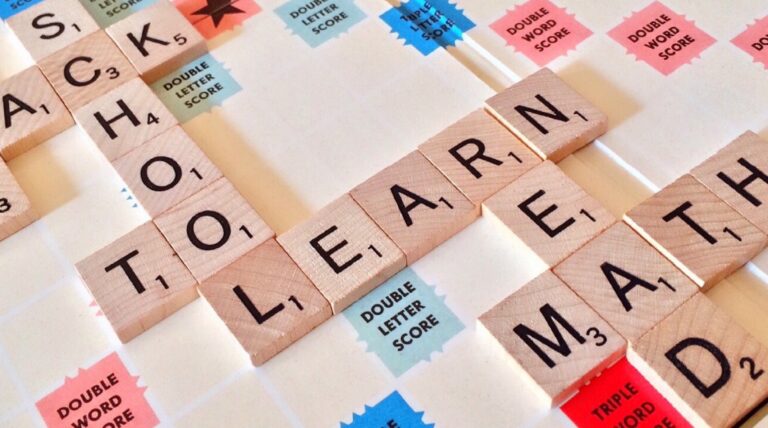How Can I Become a Family Therapist?
For those drawn to helping families navigate emotional challenges, improving communication within families, and building healthier relationships, a career as a family therapist can be fulfilling. Family therapists—often called marriage and family therapists—work with individuals, couples, and families to address various mental health and interpersonal issues.
But how do you become a family therapist? The journey typically begins with earning a bachelor’s degree, followed by a Master of Arts in Marriage and Family Therapy (MFT). Along the way, professional therapists complete supervised clinical experience, pass licensure exams, and meet state-specific requirements.
An online MFT degree prepares graduates for success, giving them the skills to understand better the complex relationship dynamics and psychological factors that influence human behavior.
Why Become a Family Therapist?
People earning an MFT degree and becoming family therapists are often motivated by a desire to assist people in overcoming challenges. They understand that, in many situations, healthy relationships are key to better mental health. Family therapists help patients understand the best ways to resolve conflicts and create more harmonious family relationships, assessing treatment options and monitoring their patients’ progress.
It’s a promising career in terms of personal growth and satisfaction. Many family therapists find satisfaction in watching clients achieve personal growth, heal from trauma, and improve familial relationships.
Family therapists work in diverse settings, including private practices, hospitals, schools, and community centers. This allows them to find a work environment that suits their interests and career goals.
Skills Needed for Success as a Family Therapist
Several key skills are essential for success in family therapy. For example, empathy is a fundamental skill in treatment, allowing therapists to understand and resonate with their clients’ feelings and experiences.
Excellent verbal and non-verbal communication skills are also crucial. Therapists must be able to actively listen and communicate their thoughts clearly and compassionately. They must also be skilled at teaching clients about effective communication techniques to improve their relationships.
Therapists frequently employ problem-solving skills to help clients find solutions to complex emotional and interpersonal problems. This requires creative thinking and the ability to approach issues from multiple perspectives. Patience and persistence are key in a process that involves gradual progress and setbacks.
Cultural competency is essential as therapists work with diverse populations and must understand and respect various cultural, religious, and ethnic backgrounds. Therapists must also adhere to strict ethical guidelines to protect client confidentiality and promote their clients’ best interests.
Demand is high for professionals who combine these skills with formal education. The U.S. Bureau of Labor Statistics reports that the number of family therapists is expected to grow by 16% over the next decade, with a projected 7,500 openings annually. The current median annual salary nationwide for family therapists is $58,510.
Educational Pathway for Marriage and Family Therapists
A master’s degree program often offers students options for earning the education necessary to become a family therapist. For example, the online MFT degree from TUW offers students three options.
MFT Clinical Track
This is the only track accredited by the Commission on Accreditation for Marriage and Family Therapy Education (COAMFTE). The COAMFTE-approved clinical track of the online MFT degree program combines online courses with a field internship.
- Minimum: 18 courses (54 credits)
- Minimum: 6 practicum courses (18 credits)
- Total Minimum for the entire program: 72 credit hours
- 300 Total Practicum Client Contact Hours
Please note that some states’ minimum requirements for licensure application may be more than 300 direct client contact hours. Also, some states may require additional courses. Therefore, students are required to check the licensure requirements for their respective state.
Licensed Professional Clinical Counseling (LPCC) Track*
Students who select the LPCC Track must take the COAMFTE-approved clinical track of the Marriage and Family Therapy program and achieve all the requirements before being eligible for the LPCC track. The four additional courses for the LPCC track, which must be taken before or in conjunction with the MFT640 series, are:
- MFT 650 | Counseling Theory
- MFT651 | Advanced Counseling Theories and Techniques
- MFT653 | Lifestyle and Career Development Counseling
- MFT698 | Spousal/Partner Abuse Detection and Intervention
Students must take a minimum of six practicum courses (18 credits). The total minimum for the entire program is 82 credit hours.
The MFT clinical program, combined with the LPCC track, is approved by the California Board of Behavioral Sciences (BBS).
Non-Clinical Track
The non-clinical track provides online MFT coursework and is not COAMFTE accredited.
- Minimum: 18 courses (54 credits)
- No practicum course requirement
- No clinical hour requirement
The Touro University Worldwide MA in Marriage and Family Therapy
The online MFT from Touro University Worldwide prepares graduates to work with individuals, families, and groups. They typically work as part of a patient’s care team, focusing on client relationship issues.
Potential job titles for graduates include Marriage and Family Therapist, Couples Therapist, Family Therapist, Child and Adolescent Therapist, Addiction Counselor, Clinical Supervisor, and Community Mental Health Counselor:
The TUW program prepares graduates to become competent, ethical, culturally sensitive, and systems-oriented marriage and family therapists. They learn to assess, diagnose, and treat a diverse population of individuals, couples, and families. TUW grounds the program in the scientist-practitioner model, preparing MFT students to make unique contributions to marriage and family therapy. Some graduates go on to earn a Doctorate in Marriage and Family Therapy.






